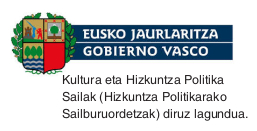The problem of a general meaning of scientific objectivity
DOI:
https://doi.org/10.26876/uztaro.131.2024.5077Keywords:
Scientific objectivity, Value-free ideal, Epistemic risk, Appropriate non-epistemic valuesAbstract
he aim of this article is to present and discuss the first step to complete the meaning of scientific objectivity. To do this, I will first expose the causes that have generated a multiple understanding of the concept. For example, the decline of the classical definitions, and the impact that have the context and the historical changes when defining objectivity. Second, I will describe the possible ways to define or understand the concept of objectivity. There I will try to explain the increase of the meanings of objectivity and then go on to ask if it possible to combine all the meaning in one general meaning. Third, I will depict the elusive and special nature of the concept. Finally, I will conclude the article presenting a brief proposal of a general meaning.
Downloads
References
Anderson, Elizabeth (2004). Uses of Values Judgements in Science: A General Argument, with Lessons from Case Study of Feminist Research on Divorce. Hypatia, 19, 1-24.
Arrieta Urtizberea, Agustin (2017). Zientziaren argi-itzalak. Udako Euskal Unibertsitatea.
Axtell, Guy (2016). Objectivity. Polity.
Biddle, Justin, eta Kukla, Quill (2017). The Geography of Epistemic Risk. Exploring Inductive Risk: Case Studies of Values in Science. Oxford University, 215-38.
Brown, Matthew J. (2019). Is Science Really Value Free and Objective? From Objectivity to Scientific Integrity. In K. McKain eta K. Kampouaris (argtz.), What is Scientific Knowledge? An introduction to Contemporary Epistemology of Science. Routledge.
Burch, Matthew, eta Furman, Katherine (2019). Objectivity in science and law: a shared rescue strategy. International Journal of Law and Psychiatry, 64, 60-70.
Cartwright, Nancy; Hardie, Jeremy; Montuschi, Eleonora; Soleiman, Maththew, eta Thresher, Ann C. (2022). The Tangle of science: Reliability Beyond Method, Rigor, and Objectivity. Oxford University Press.
Crasnow, Sharon (2021). Coherence objectivity and measurement: the example of democracy. Synthese, 199, 1.207-29.
Daston, Lorraine (1992). Objectivity and the Escape from Perspective. Social Studies of Science, 22, 597-618.
Daston, Lorraine, eta Galison. Peter (2007). Objectivity. Zone Books.
Diéguez, Antonio: (2024). La Ciencia en Cuestión. Herder.
Dorato, M. (2004). Epistemic and non-epistemic values in science. Science, values, and objectivity, 52-77.
Douglas, Heather (2004). The Irreducible Complexity of Objectivity. Synthese, 138, 3, 453-73.
Douglas, Heather (2000). Inductive Risk and Values in Science. Public Affairs Quarterly, 22, 120-39.
Douglas, Heather (2007). Rejecting the Ideal of Value-Free Science. In H. Kincaid, J. Dupre eta A. Wylie (argtz.), Value-free science? Ideals and illusions (120-39. or.). Oxford University Press.
Douglas, Heather (2009). Science, Policy, and the Value-Free Ideal. University of Pittsburgh Press.
Elliot, Kevin. C. (2022). Values in Science. Cambridge Elements.
Fine, Arthur (1998). The Viewpoint of No-One in Particular. Proceedings and Addresses of the APA, 72, 9-20.
Gaukroger, Stephen (2012). Objectivity. Oxford University Press.
Hacking, Ian (2015). Let’s Not Talk About Objectivity. In Objectivity in Science. Springer, 19-33.
Harvard, Stephanie, eta Winsberg, Eric (2021). The Epistemic Risk in representation. Kennedy Institute of Ethical Journey, 32, 1-31.
Harding, Sandra. G. (1995). Strong Objectivity: A Response to the New Objectivity Question. Synthese, 104(3), 331-49.
Holman, Bennet, eta Wilholt, Torsten (2023). The new demarcation problem. Studies in History and Philosophy.
Intemann, Kristen (2015). Distinguishing between Legitimate and Illegitimate Values, in Climate Modeling. European Journal of Philosophy of Science, 5, 217-32.
John, Stephen (2021). Objectivity in Science. Cambridge University Printing House.
Janack, Marianne (2002). Dilemmas of Objectivity. Social Epistemology, 16(3), 267-81.
Kitcher, Philip (2001). Science, truth, and Democracy. Oxford University Press.
Koskinen, Inkeri (2018). Defending a risk account of scientific objectivity. The British Journal for the Philosophy of Science.
Koskinen, Inkeri (2021). Objectivity in context: withholding epistemic judgement as a strategy for mitigating collective bias. Synthese 199, 211-225.
Koskinen, Inkeri (2023). Participation and objectivity. Philosophy of Science, 90(2), 413-432.
Kourany, Janet (2010). Philosophy of Science after Feminism. Oxford University Press.
Lloyd, Elisabeth A. (1995). Objectivity and the Double Standard for Feminist Epistemologies. Synthese 104(3), 351-81.
Longino, Helen E. (1990). Science as Social Knowledge: Values and Objectivity in Scientific Inquiry. Princeton University Press.
Longino, Helen E. (2002). The fate of knowledge. Princeton University Press.
Ludwigen, David (2016). Ontological Choices and the Value-Free Ideal. Erkenntnis, 81, 1253-72.
Megill, Alan (1994). Introduction: four senses of objectivity. In A. Megill (argtz.), Rethinking objectivity (1-20. or.). Duke University Press.
Montuschi, Eleonora (2021). Finding a context for objectivity. Synthese, 199, 4.061-76.
Nagel, Thomas (1986). The View from Nowhere. Oxford University Press.
Neurath, Otto ([1921] 1973). Anti-Spengler. In M. Neurath eta R.S. Cohen (argtz.), Empiricism and Sociology (158-213. or.).
Porter, Theodore (1995). Trust in numbers: The pursuit of objectivity in science and public life. Princeton University Press.
Proctor, Robert (1991). Value-free science? Purity and power in modern knowledge. Harvard University Press.
Reiss, Julian, eta Sprenger, Jan (2020). Scientific Objectivity. In Edward N. Zalta (argtz.), The Stanford Encyclopedia of Philosophy.
Staley, Kent (2017). Decisions, Decisions: Inductive Risk and the Higgs Boson. In K.C. Elliot eta T. Richards (argtz.), Exploring Inductive Risk: Case Studies of Values of Science (77, 14-34. or.).
Williams, Bernard (1986). Ethics and the Limits of Philosophy. Fontana.
Wittgenstein, Ludwig (1999 [1953]). Investigaciones Filosóficas. Ediciones Altaya.
License
Copyright (c) 2024 Iñaki Requejo Aramendi

This work is licensed under a Creative Commons Attribution-NonCommercial-ShareAlike 4.0 International License.




















